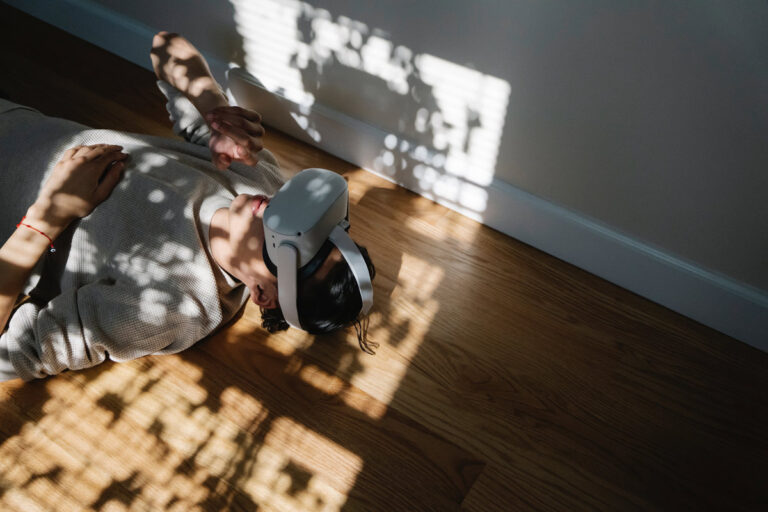Another female researcher reports being virtually raped in Facebook’s metaverse

Concerns about the experiences of women in the metaverse have continued to unfold as more cases of virtual sexual assault hit headlines. The latest experience comes from that of a female researcher who, while studying the behaviour of Meta’s Horizon World users, saw her virtual avatar raped within just an hour of “donning her Oculus virtual reality (VR) headset,” Business Insider reported.
The researcher in question was part of non-profit corporate accountability group SumOfUs’ investigation Metaverse: another cesspool of toxic content, which was published 24 May 2022. In the report, the violent encounter experienced by the analyst is detailed. According to SumOfUs, its researcher was led into a private room at a virtual party and subsequently assaulted by a user who instructed her to “turn around so he could do it from behind while users outside the window could see.”
A sectioned clip of the recorded footage, which was linked as part of the group’s research and seen by SCREENSHOT, shows the researcher’s avatar (who cannot be externally seen as it is from her perspective) assaulted by one user while another watches and attempts to ply her with virtual vodka. The act was non-consensual. “It happened so fast I kind of disassociated. One part of my brain was like ‘w[hat] t[he] f[uck] is happening’, the other part was like ‘this isn’t a real body’, and another part was like, ‘this is important research’,” the researcher explained.
In the short clip, the male users can be heard making vulgar commentary and it’s been highlighted in the paper that while the assault was taking place, the VR controllers vibrated (which occurs when your avatar is touched)—leaving the researcher overwhelmed by a disorienting physical sensation in conjunction with the assault. To make the matter worse, this is undeniably not an isolated incident, with SumOfUs citing the very infamous case of Nina Jane Patel who reported being ‘gang raped’ in Meta’s VR in February 2022.
“Given the failure of Meta to moderate content on its other platforms, it is unsurprising that it is already seriously lagging behind with content moderation on its metaverse platforms. With just 300,000 users, it is remarkable how quickly Horizon Worlds has become a breeding ground for harmful content,” SumOfUs wrote as part of its findings.
Alongside these cases, the group also cited the case of an anonymous beta tester for Horizon Worlds whose avatar was groped and, despite filing a complaint, was actually blamed by Meta while the virtual aggressor reportedly went unpunished. Multiple similar external incidents beyond SumOfUs’ internal research were listed. But it doesn’t end here—the organisation’s inquiry also surfaced a cesspool of conspiracy theories, graphic content and hate speech.
Linking to an investigation carried out by BuzzFeed News, the group noted that “within [just] a few minutes of logging into [Horizon Worlds], SumOfUs researchers experienced homophobic slurs, gun violence (including a shoot out at a house party), drugs laid out on a table, and a user stalking the researcher and following her into different worlds.”
Following its findings, SumOfUs has since filed a resolution to a cluster of shareholders requesting a human rights risk assessment of the virtual world to be conducted by the company, the BBC reported. The non-profit group’s campaigns director, Vicky Wyatt, went on to tell the BBC Tech Tent podcast, “Rather than Facebook rushing headlong into building this metaverse, we’re saying look, you need to stop [and] look at all the harms that are happening on your platforms right now that you can’t even deal with.”
“Let’s not repeat and replicate those in the metaverse. We need a better plan here on how to mitigate online harms in the metaverse,” she added. A spokesperson for Meta spoke to the Daily Mail in response to the accusations made by SumOfUs, stating that the researcher in question did not have the ‘Personal Boundary’ feature activated. The tool, according to the spokesperson, is automatically on by default and forbids non-friend users from “coming within four feet of your avatar.”




